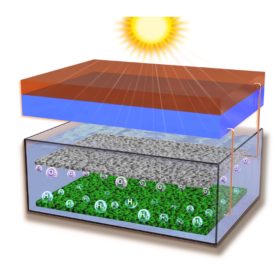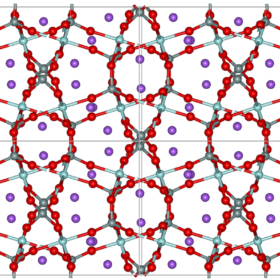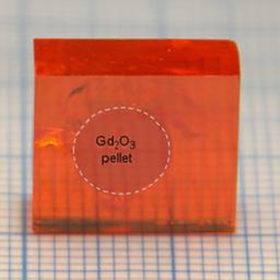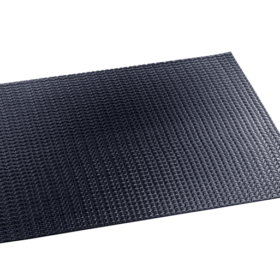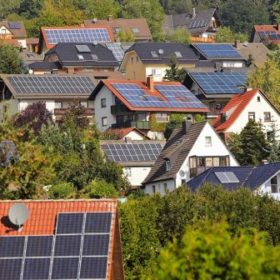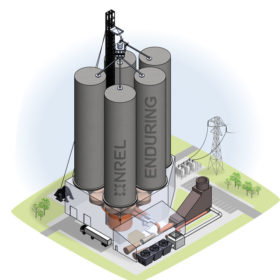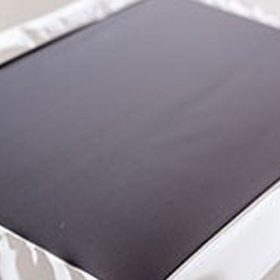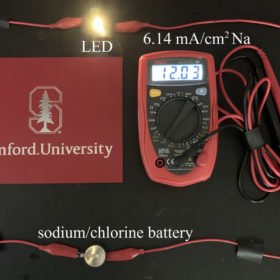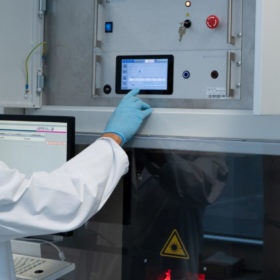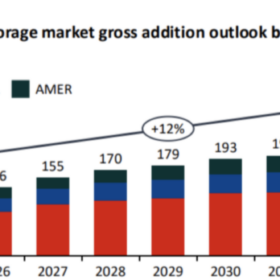Australian researchers develop direct solar-to-hydrogen generation tech
Developed by Australian scientists, the demonstrated system is claimed to achieve a solar-to-hydrogen efficiency of 20% at a levelised cost of hydrogen (LCOH) of $4.10/kg. The direct solar hydrogen generation technology is powered by a tandem perovskite-silicon solar cell with an unprecedented high open-circuit voltage of 1.271 V, and a power conversion efficiency of 24.3%.
Novel chemistry hybrid flow battery: non-aqueous, high-voltage, and crossover-free
Scientists in the United States claim to have created a crossover-free, high-voltage, non-aqueous hybrid flow battery with a novel chemistry for the solid sodium anode. The device has shown a high working voltage of around 2.6 V and a coulombic efficiency of 95.0%.
Perovskites can also detect nuclear radiation
Scientists in Switzerland found that perovskites can be used to detect thermal neutrons emitted by radioactive devices. Taking advantage of several properties that also make the materials attractive for solar cell applications, the group was able to fabricate a novel device that could have various practical applications, including in energy generation.
Flexible solar panel for vehicle-integrated applications
Called SolFlex, the frameless panel is based on 22%-efficient solar cells and is designed for high, one-sided heat load. The standard product measures 100x100x2.9cm, weighs in at 3.4kg, and has a power output of 170 W.
AEMO on target to trial DER marketplace platform
The development of a “world-first” marketplace designed to maximise the value of distributed energy resources, including rooftop solar PV, batteries and electric vehicles is on track with the Australian Energy Market Operator confirming it expects to start trialling the platform in early 2022.
Storing wind, solar power with silica sands
NREL researchers developed a system that uses heated silica particles for thermal energy storage. The baseline technology is designed for a storage capacity of up to 26,000 MWh and is claimed to have a cost of of between $2 and $4 per kWh.
German researchers want to reduce manufacturing costs for electrolysers by more than 25%
A number of Fraunhofer institutes in Germany want to make green hydrogen more cost-competitive and are working to identify the best and most economical processes for the production of electrolysers. They intend to build a digital library of future-proof electrolyser manufacturing processes with which the investment costs and even the return on investment can be determined in advance depending on the planned production volume.
New alkali metal-chlorine battery promises 6x energy density
Scientists in the U.S. discovered a promising new battery chemistry based on chlorine and table salt. Batteries based on this chemistry can achieve at least six times the energy density of today’s lithium-ion batteries, according to the group that created it. The prototype battery could already be suitable for small devices such as hearing aids, and with further work could be scaled up to larger applications.
Spanish consortium to simplify hydrogen production through photoelectrocatalysis
Spanish energy giants Repsol and Enagás are planning to build an electrolyser based on photoelectrocatalysis at an industrial complex owned by the oil company in Puertollano in 2024. The device receives direct solar radiation and with a photoactive material it generates the electrical charges that cause the separation of the water molecule into hydrogen and oxygen.
Fraunhofer CSP develops repair process for PERC solar cells
The performance of the solar cell contacts can be improved with laser-assisted current treatment. The process does not damage the solar cells but only optimises faulty semiconductor-metal contacts.
